Search Engine Optimization (SEO) is a dynamic and ever-evolving field that plays a crucial role in the online success of businesses. However, with the constant changes in search engine algorithms and the influx of misinformation, several myths about SEO have emerged. In this article, we’ll debunk seven common SEO myths to help you navigate the complex world of digital marketing.
Myth 1: Keyword Stuffing is the Key to High Rankings
One of the most persistent SEO myths is the belief that saturating content with keywords will boost a website’s search engine rankings. In reality, keyword stuffing not only fails to improve rankings but can also harm a site’s performance. Search engines have become more sophisticated and prioritize content that offers value to users. Overusing keywords can lead to poor user experience and trigger penalties from search engines like Google.
The key to effective SEO is to focus on creating high-quality, relevant content that naturally incorporates keywords. It’s essential to strike a balance between optimization and providing valuable information that engages users.
Myth 2: Longer Content Always Performs Better
Word count is important for an article to perform well; however, creating long-form content doesn’t necessarily guarantee a higher ranking. While quite long, your 1,500-word blog may miss the mark with your target audience if you fail to cover a relevant topic. An 800-word, high-quality article that covers valuable information for readers and matches search intent can rank very well. In short, it’s quality over quantity—not word count.
Along with creating comprehensive content that meets search intent, your high-quality blog should include accurate, up-to-date information, an SEO title, a meta description, and clear, readable headings and subheadings.
Myth 3: The More Backlinks, the Better
In the past, the amount of backlinks was a primary factor in determining a website’s authority and ranking. However, the quality of backlinks now holds more significance than sheer quantity. Google’s algorithms have become more sophisticated and can identify spammy or low-quality backlinks.
Focusing on building a diverse and high-quality backlink profile is crucial for SEO success. Engage in ethical link-building practices, such as guest posting on reputable websites, earning backlinks through valuable content, and avoiding black-hat tactics that can result in penalties.
Myth 4: Social Media Doesn’t Impact SEO
Some believe that social media and SEO are entirely separate entities, but the truth is that they are interconnected. While social media signals themselves may not directly influence search engine rankings, social media can indirectly impact SEO through increased brand visibility, user engagement, and traffic.
When content is shared on social media platforms, it can attract more visitors to a website. Additionally, social signals, such as likes, shares, and comments, can contribute to a website’s credibility. A strong social media presence can enhance brand awareness, leading to more natural backlinks and improved search engine rankings.
Myth 5: SEO is a One-Time Effort
SEO is an ongoing process that requires consistent effort and adaptation to stay competitive. Some mistakenly believe that optimizing a website once is enough to maintain high rankings indefinitely. However, search engines continually update their algorithms, and competition in the digital landscape is fierce.
Regularly auditing and updating your website’s content, monitoring keyword performance, and staying informed about industry trends is essential for sustained SEO success. A continuous commitment to improvement is key to staying ahead in the ever-evolving world of digital marketing.
Myth 6: Page Speed Doesn’t Affect SEO
Page speed is a critical factor that directly influences user experience and, consequently, SEO rankings. Slow-loading websites frustrate users and lead to higher bounce rates, negatively impacting search engine rankings. Google, in particular, considers page speed as a ranking factor and has emphasized the importance of a fast and responsive website.
Optimizing images, leveraging browser caching, and using content delivery networks (CDNs) are some effective strategies to improve page speed. Prioritizing a fast and seamless user experience not only benefits SEO but also enhances overall user satisfaction.
Myth 7: SEO is All About Ranking High
While achieving high rankings in search engine results is a primary goal of SEO, it’s not the only metric that matters. Some believe that a high ranking alone guarantees success, but in reality, the focus should be on attracting targeted traffic that converts.
Instead of solely chasing high rankings, concentrate on creating valuable, relevant content that addresses the needs of your target audience. User engagement, conversion rates, and overall website performance are equally important factors that contribute to long-term success in the digital landscape.
Debunk SEO Myths with Cadence!
SEO isn’t some mythical creature. There’s a rhyme and reason for deploying various SEO tools and techniques to appease the algorithms of search engine crawlers. CadenceSEO is a full-service SEO agency and consultancy. Our SEO nerds stay up-to-date with the latest innovations in SEO to keep your enterprise ahead of the pack. Rather than following SEO myths that can leave your business spinning its wheels, let Cadence streamline your SEO marketing strategy to increase your online presence effectively. Interested in learning more? Contact us for a free consultation today!






